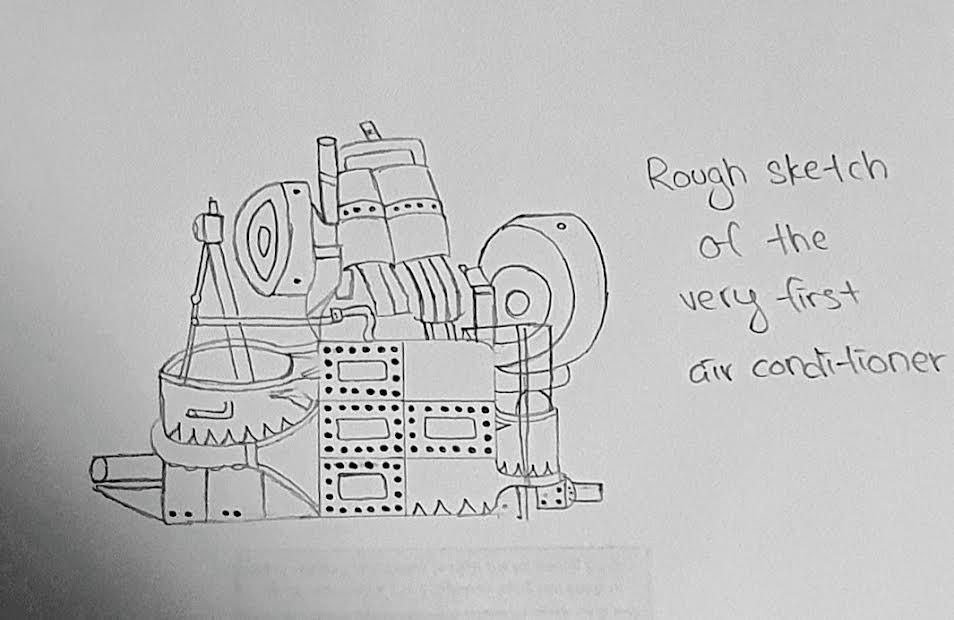Air Conditioning

A drab appliance or a great gift?
Once upon a time, the sun was to blame for the death of people worldwide. Things were hopelessly dire during the dog days. Splashing around the sea and enjoying their favourite ice cream wasn't enough to prevent a dreadful death. Then one day, a young engineer was born, building back a better world as we know it today. His forgotten invention not only saved lives but paved the way for us to progress in numerous fields today. A miracle that none of us really appreciate to date.
Air Conditioning - How has it impacted us?
It takes a lot of discipline, devotion, and determination to become a martial artist. As a result, I make the most of every minute I spend in the dojo because the sweat and work I put in steadily improve my overall performance. My rest, on the other hand, is equally important. This is why anytime I want to relax, and I turn on the air conditioner.

Indeed, when it becomes a little too hot inside, the air conditioner comes to our rescue. Otherwise, it's just a piece of equipment that we all take for granted. Therefore, you may be wondering: How did people survive before air-conditioners were invented?
People had to come up with ways to remain cool back in the old times. People constructed houses with thick walls to prevent heat from travelling through the structures. They even used fans to blow through ice and postponed cooking until later in the evening.
Historical findings reveal that ancient Egyptians invented the first air-conditioning units. But these aren't sophisticated as you may think.
It was all based on a basic principle: when outside air flows through damp material, it cools down. And, happily, the first air conditioner was invented in 1902 by a young engineer named Willis Carrier. And, oh my goodness, it was massive.
Air conditioners were not designed for comfort and luxury, much to my surprise. It was designed to solve a humidity problem in a printing shop. Surprisingly, it wasn't until 1931 that they made their way into our homes. H.H. Schultz and J.Q. Sherman invented the first window air conditioners. Regardless, they were prohibitively expensive. Air conditioners did not become widely used in homes until the 1960s. At least, it was the case when box air conditioners became affordable.
Air conditioners, without a doubt, were (and are) extremely useful to us. They not only prevented us from being turned into grilled turkeys, but they also saved countless lives annually-195,000 heat-related deaths were averted in people 65 years and above alone in 2019. Furthermore, our capacity to manage the temperature led to the development of medicines to treat diseases ranging from the common cold to cancer.
Additionally, cinemas have continued to reap the benefits of the idea by releasing the most anticipated films throughout the summer months to attract more patrons during the hottest season of the year. They also contributed to the growth of multi-story structures as we know them today. Hence, we would not have progressed in various sectors such as health, architecture, and even entertainment if it weren't for air conditioners.
However, there are two sides to the same coin. HFCs and CFCs, which are contributors to global warming, were emitted by the first air conditioners. The release of CFCs (chlorofluorocarbons) is to blame for the ozone layer's depletion, which contributes to climate change's destructive effects. Nonetheless, following the Montreal Protocol in the late twentieth century, all air conditioners were CFC-free (though they still generate hydrofluorocarbons, which have a minor influence on the ozone layer but contribute to the greenhouse effect).
In a word, air conditioners are more than simply drab appliances mounted on our walls. They have propelled us forward, but they also can shatter us and exacerbate our main climatic challenges. So, let us consider our actions, our influence, and our efforts to build a better world for ourselves and future generations.
References
https://www.crwolfeheating.com/
https://www.smithsonianmag.com/smithsonian-institution/unexpected-history-air- conditioner-180972108/
https://alltemp-ac.com/why-did-carrier-invent-air-conditioning/
https://www.coynecollege.edu/a-brief-history-of-hvac-air-conditioning/
https://www.drhvac.ca/blog/health-benefits-air-conditioning/
https://www.hhaircon.com.au/general-news/9-fun-facts-about-air-conditioning/
https://allairsystemsnj.com/air-conditioning-and-its-impact-on-the-environment/
https://www.cnbc.com/video/2021/07/24/air-conditioning-major-contributor-to- climate-change.html
Author biography
Aishath Hanan Mohamed Asif is a social butterfly from the hustle and bustle of Malé City. She's a spontaneous, sweet and smiley teenager enrolled in Jamaluddin School. With a rare ENFJ personality, she's a confident Gemini who enjoys reading teen-fiction books, doing martial arts and making new friends. Her interests range from forensic science to psychology.

Cite this article as:
Aishath Hanan Mohamed, Air Conditioning, theCircle Composition, Volume 2, (2022). https://thecirclecomposition.org/air-conditioning/
